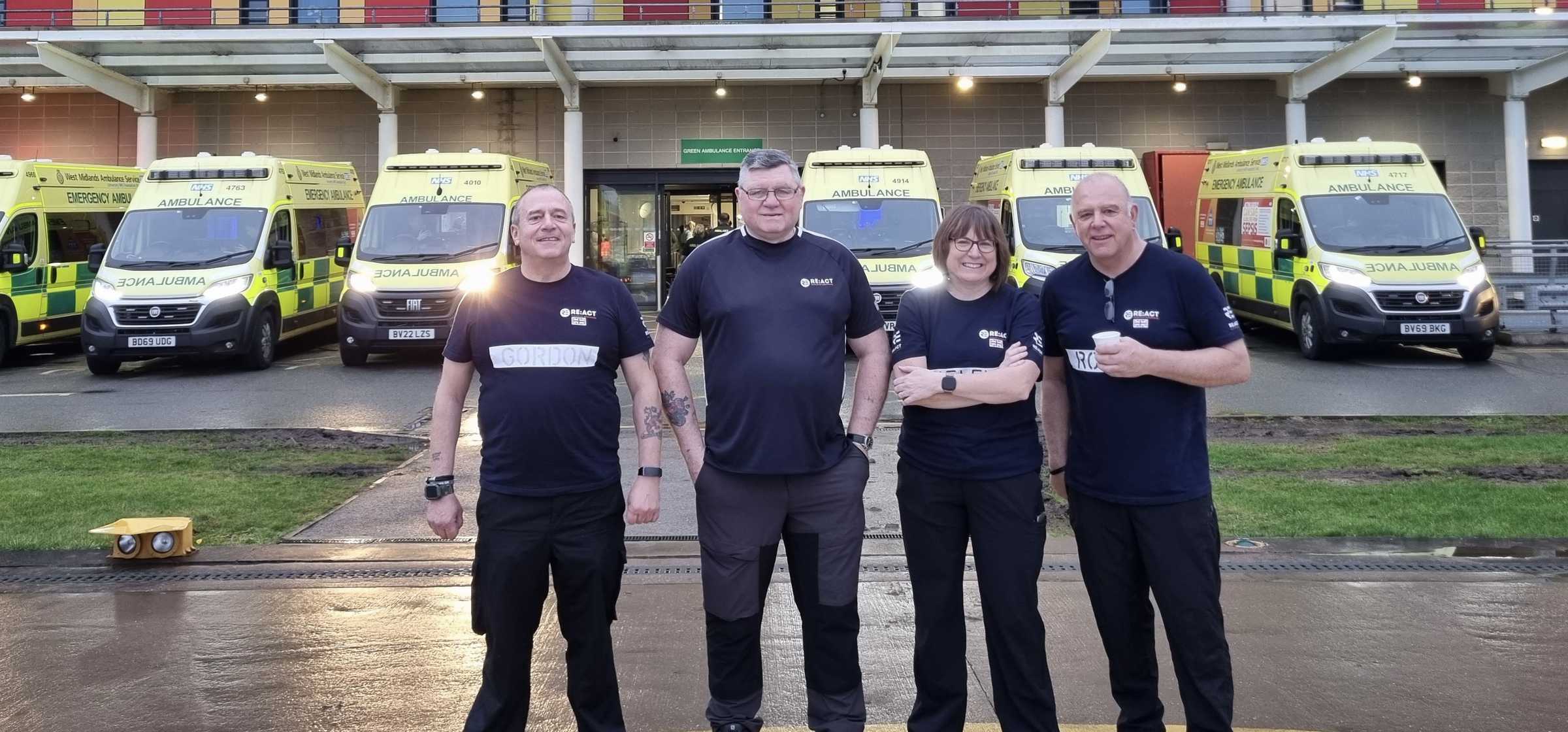Enhancing Emergency Preparedness: How REACT is supporting Walsall Healthcare NHS Trust

Posted by Laura Butlin 20th March 2024 News
Estimated Reading Time: 2 mins
A clinical advisor at Walsall Manor Hospital has reaffirmed the invaluable role played by REACT Responders in bolstering emergency preparedness, through their unwavering dedication and commitment. By actively participating in Chemical, Biological, Radiological, and Nuclear (CBRN) training and exercises, REACT volunteers have significantly contributed to enhancing the hospital's resilience and response capabilities.
In collaboration with Walsall Manor and one other midlands trust, there are now over 30 fully trained, REACT CBRN Decontamination Operators. Their role is to support the hospital staff during protracted large scale CBRN incidents, arriving at the hospital 2 – 4 hours after any initial activation to work alongside and under the supervision of senior hospital staff, so relieving those who have been engaged from the initial activation and allowing specialist medically qualified staff members to be freed up to treat patients.
Craig Morgan, EPRR (Emergency Preparedness, Resilience and Response) Clinical Advisor describes below, some of the key reasons why REACT’s involvement has proven to be instrumental in advancing the hospital's preparedness efforts.
Enhanced collaboration and teamwork
“Attending training together allows REACT Responders and hospital staff to collaborate and build strong relationships. By working together, they develop a deeper understanding of each other's roles and responsibilities, fostering a sense of teamwork and cooperation. This collaboration enhances communication and problem-solving abilities, benefiting the entire healthcare team.”
Resource Optimisation
“By attending training together, the volunteers and hospital staff can pool their resources and optimise their use. The hospital can utilise the volunteer group's time, skills, and dedication to further their training efforts. This can help streamline the training process, ensuring that limited resources are allocated efficiently and effectively. Additionally, the volunteers can offer support during training sessions, providing practical demonstrations or assisting hospital staff with hands-on tasks or even allowing clinical staff to return to their duties whilst manual labour is completed.”
Improvement in patient care
“The primary goal of attending any training is to provide quality patient care. The volunteer group's involvement in training at the hospital directly contributes to this goal. By attending training, they can gain a deeper understanding of the hospital's policies and procedures, enabling them to provide more effective support to patients.”
Building stronger community ties
“The Responders commitment to supporting the hospital by attending training demonstrates their commitment to the community. It fosters a sense of collaboration and partnership between the hospital and the local community. This not only strengthens the hospital's reputation but also fosters goodwill and support for the hospital's mission. By attending training together, the volunteer group and hospital staff can build stronger connections and foster a sense of shared responsibility towards the community's well-being.”
Craig concluded his endorsement by stating “The volunteer group REACT has been immensely beneficial in supporting the hospital by attending training. Their collaboration, knowledge sharing, resource optimisation, impact on patient care, and role in building stronger community ties all contribute to their positive impact on the hospital's training efforts. By working together, they create a synergy that enhances the overall healthcare experience for both hospital staff and patients.”
REACT Responders have supported Wexham Park Hospital, Walsall Manor Hospital, Worcestershire Royal Hospital and The Royal Stoke University Hospital, which were all experiencing severe pressure during periods of peak winter demand in 2022 and 2023. The volunteers assisted with general portering, distribution of refreshments to staff and patients and general non-clinical support. Responders also supported the relocation of Walsall’s Emergency Department in March last year.
